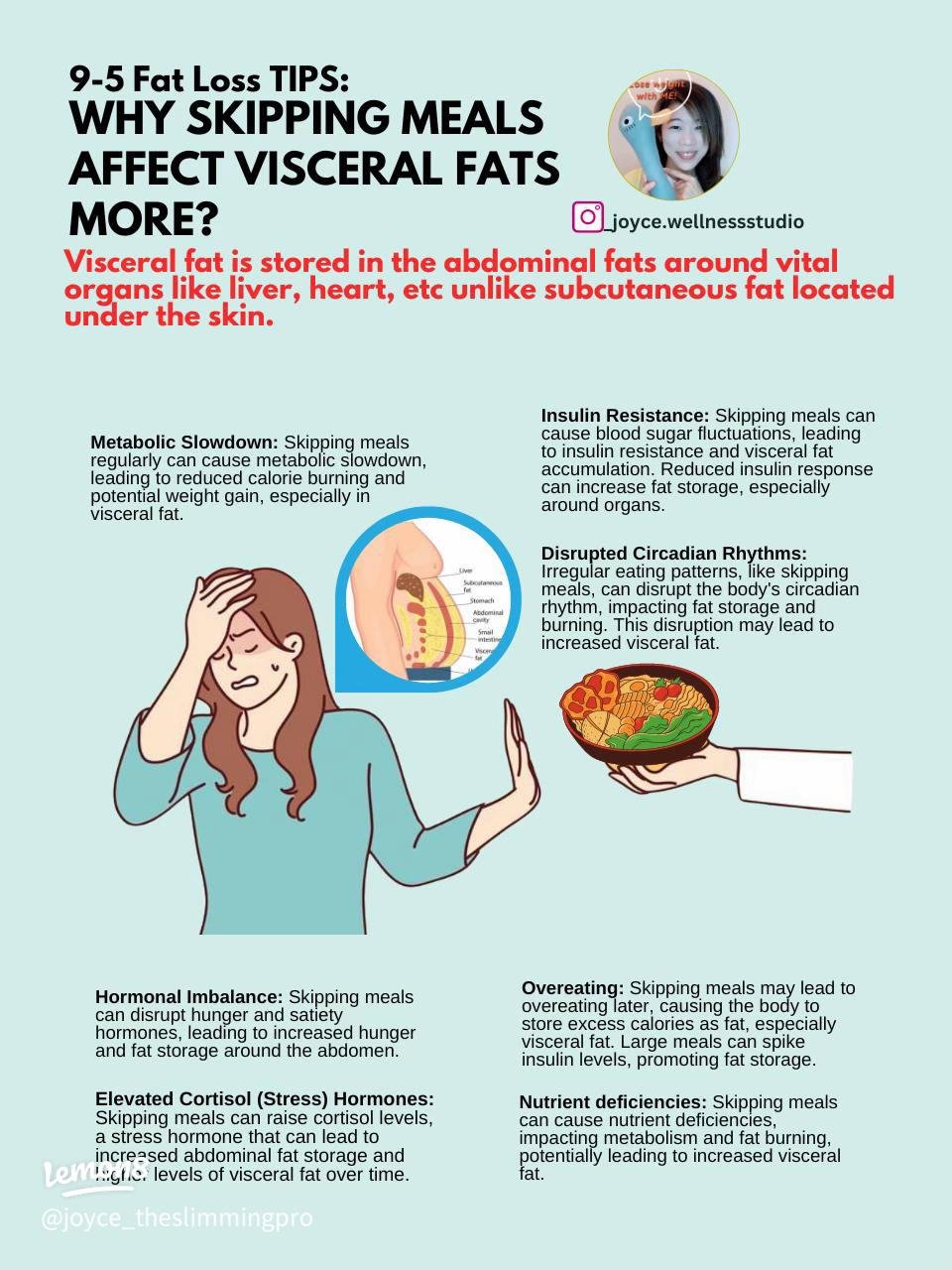Have you ever wondered if skipping meals could be the secret to losing weight faster? It sounds simple—eat less, lose more—but your body doesn’t always work that way.
You might think skipping breakfast or lunch will help you shed pounds, but what if it’s actually slowing down your progress? Understanding how your body reacts when you skip meals can change everything about your approach to weight loss. Keep reading to discover the surprising truth that can help you reach your goals without starving yourself or feeling deprived.
Skipping Meals And Weight Loss
Many people think skipping meals helps with weight loss. They believe eating less means losing weight faster. But skipping meals can affect the body in different ways.
This article explains how skipping meals affects metabolism, calorie deficit, and common myths about skipping meals.
How Skipping Meals Affects Metabolism
When you skip meals, your body may slow down metabolism. Metabolism is how your body burns calories for energy. A slower metabolism burns fewer calories.
Skipping meals can also cause your body to store more fat. This happens because the body thinks food is scarce and saves energy.
Calorie Deficit And Weight Loss
Weight loss happens when you burn more calories than you eat. This is called a calorie deficit. Skipping meals can create a calorie deficit, but it is not the best way.
Eating regular, balanced meals helps maintain energy. It also prevents overeating later in the day, which can ruin the calorie deficit.
Common Myths About Skipping Meals
Many myths surround skipping meals. Some think it always causes weight loss. Others believe it is healthy or detoxifies the body. These ideas are not true.
- Skipping meals always slows metabolism
- It leads to overeating later
- The body does not need detox from skipping meals
- Eating regularly supports better weight control
Impact On Hunger And Cravings
Skipping meals can change how hungry you feel. It may also affect your cravings for certain foods.
Understanding these effects helps you decide if skipping meals supports your weight loss goals.
Hormonal Changes From Skipping Meals
When you skip meals, your body changes hormone levels. Ghrelin, the hunger hormone, can rise and make you feel very hungry.
At the same time, levels of leptin, the hormone that signals fullness, may drop. This makes it harder to know when to stop eating.
- Ghrelin increases hunger signals
- Leptin decreases, lowering fullness signals
- Insulin levels may also change, affecting energy use
Effects On Appetite Control
Skipping meals can disrupt how you control your appetite. It may cause stronger hunger feelings and make you want high-calorie foods.
Your brain may focus more on food, leading to less control over eating choices. This can make it hard to stick to a healthy diet.
- Stronger hunger can reduce willpower
- Cravings for sugary or fatty foods may increase
- Skipping meals may lead to mindless snacking
Risk Of Overeating Later
Skipping meals often leads to eating too much at the next meal. This can add more calories than if you ate regularly.
Overeating can slow down weight loss or cause weight gain. It also may cause stomach discomfort and affect digestion.
- Large meals after fasting can be hard to digest
- Overeating can cause blood sugar spikes
- May lead to a cycle of skipping and binge eating
Skipping Meals And Nutrient Intake
Skipping meals is a common method some people use to lose weight. It means not eating breakfast, lunch, or dinner at times. This can affect how the body gets important nutrients.
Eating fewer meals might lower calorie intake, but it can also reduce vitamins and minerals. Good nutrition is key for health and energy.
Potential Nutritional Deficiencies
Skipping meals can cause lack of important nutrients. The body needs vitamins, minerals, and other nutrients to work well.
Missing meals often means missing foods rich in iron, calcium, and vitamins A, C, and D. This can lead to health problems over time.
- Lower energy levels and tiredness
- Weaker immune system
- Poor bone health due to less calcium
- Reduced muscle strength and recovery
- Difficulty concentrating and memory problems
Importance Of Balanced Meals
Balanced meals give the body energy and nutrients it needs. Each meal should have proteins, healthy fats, and carbohydrates.
Eating balanced meals helps keep blood sugar steady and prevents overeating later. It supports healthy weight loss and good health.
- Proteins help build and repair muscles
- Carbohydrates provide quick energy
- Healthy fats support brain and heart health
- Fruits and vegetables add vitamins and fiber
Long-term Health Considerations
Skipping meals regularly can cause long-term health issues. The body may slow down metabolism to save energy.
It can also lead to poor eating habits and mood swings. Balanced eating habits support lasting weight control and well-being.
- Risk of nutrient shortages over time
- Possible muscle loss due to low protein
- Weakened immune response
- Problems with digestion and gut health
- Increased chances of binge eating episodes

Alternatives To Skipping Meals
Skipping meals is a common idea for weight loss, but it can cause problems. It may slow your metabolism and make you feel very hungry later.
There are better ways to manage your eating habits. These methods help control hunger and support steady weight loss.
Intermittent Fasting Approaches
Intermittent fasting limits eating to certain hours each day. It does not mean skipping meals all the time.
This approach helps reduce calorie intake without constant hunger. It also improves how your body uses energy.
- 16/8 method: eat during an 8-hour window, fast for 16 hours
- 5:2 method: eat normally 5 days, reduce calories 2 days
- Eat-stop-eat: fast for 24 hours once or twice a week
Smaller, Frequent Meals
Eating smaller meals often helps keep your metabolism active. It prevents feeling too hungry between meals.
This habit can stop overeating and keep your energy steady during the day.
- Eat 4 to 6 small meals daily
- Include protein and fiber in each meal
- Keep portion sizes moderate
Mindful Eating Practices
Mindful eating means paying full attention to your food. It helps you enjoy meals and recognize hunger cues.
This practice reduces overeating and helps you make healthier choices during meals.
- Eat slowly and chew well
- Avoid distractions like phones or TV
- Notice hunger and fullness signals
Who Should Avoid Skipping Meals
Skipping meals is a common idea for losing weight. But it is not safe for everyone. Some people may feel weak or sick if they skip meals.
Knowing who should avoid skipping meals helps keep your body healthy. Certain groups need regular food to stay strong and focused.
People With Medical Conditions
People with medical problems like diabetes should not skip meals. Skipping can cause blood sugar to drop too low. This can lead to dizziness or fainting.
Other conditions like low blood pressure or stomach issues also need regular meals. Eating on time helps manage symptoms and keeps energy steady.
- Diabetes requires balanced blood sugar levels
- Low blood pressure needs steady nutrition
- Stomach problems can worsen without food
Children And Adolescents
Children and teens grow fast and need regular meals. Skipping meals can slow their growth and hurt concentration in school. They need energy to play and learn.
Eating small meals often helps them stay active and healthy. Missing meals can make them tired and cranky.
- Growth needs regular nutrition
- Brain needs fuel for learning
- Energy is important for play
Athletes And Active Individuals
Athletes and active people use a lot of energy. Skipping meals can cause low energy and poor performance. Their muscles need fuel to recover and grow.
Eating at regular times helps keep strength and endurance. Skipping meals can also increase the risk of injury.
- Energy needed for training and games
- Muscle repair needs nutrients
- Regular meals support strong performance

Frequently Asked Questions
Does Skipping Meals Lead To Long-term Weight Loss?
Skipping meals may cause short-term weight loss but often leads to overeating later. Sustainable weight loss requires balanced meals and healthy habits.
How Does Skipping Meals Affect Metabolism?
Skipping meals can slow down metabolism as the body conserves energy. This may reduce calorie burning and hinder weight loss efforts.
Is Intermittent Fasting Better Than Skipping Meals?
Intermittent fasting involves planned eating windows and may improve metabolism. Randomly skipping meals lacks structure and can disrupt energy levels.
Can Skipping Meals Cause Muscle Loss?
Yes, skipping meals frequently can lead to muscle loss. Without enough nutrients, the body may break down muscle for energy.
Conclusion
Skipping meals might seem like a quick fix for weight loss. But it’s not a healthy or sustainable method. Your body needs regular fuel to function well. Missing meals can slow your metabolism. It can also lead to overeating later.
Instead, focus on balanced eating. Choose nutritious foods. Keep portions in check. Stay active every day. Small, consistent changes help manage weight better. Listen to your body’s hunger signals. Eat mindfully. Achieve your goals in a healthier way.



